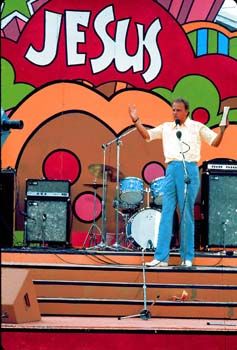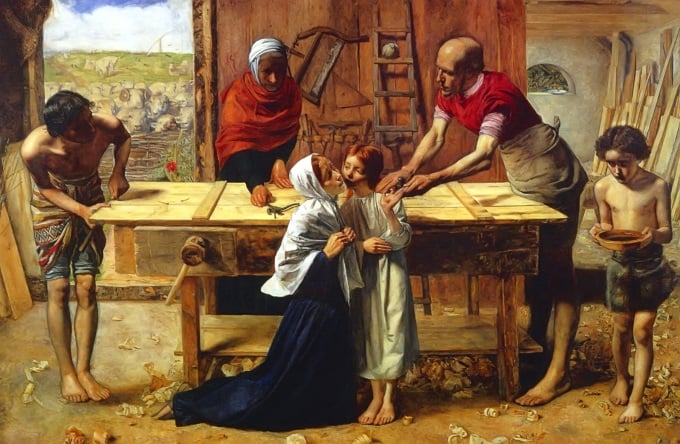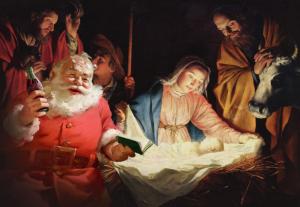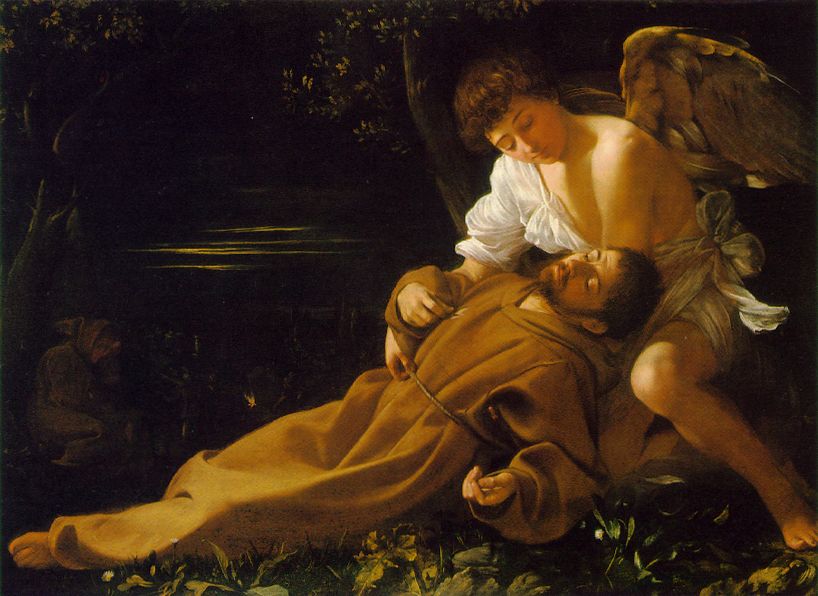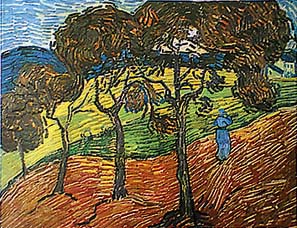
Thirty years ago this month a 92-year-old man died and I’ve never forgotten him. His name was Bill, but everyone called him Pop. He was the oldest member of the first church my (now-ex) husband and I pastored, decades ago in New Jersey. You could say Pop was the patriarch of that small-town church, but there was nothing about him that suggested a heavy-hand. He was a gentle soul with an iron spine and, of all the people I came to know in that church, Pop was the one whose soul kept me righted.
I’ll call that small town “Barney Ridge,” the church we served “Barney Baptist,” and otherwise change the names of people in this story to preserve their anonymity.
During the early years when Barney was a one-street town and Pop was strapping youth, he and young wife bought a piece of land on the hill east of town where he kept a garden from which he fed their five children. Every summer his wife put up three-hundred containers of corn, cabbage, rhubarb, tomatoes, and anything else Pop harvested. He went door-to-door selling the leftovers and became known as “Farmer Bill on Barney Hill.”
When Pop got too old to handle the farm they moved into town. When Pop learned I wanted to put in a garden after we moved to Barney, he decided to work out his digging impulses in my back yard. Each spring he arrived unannounced, shovel and hoe in hand, and start turning over the earth one shovelful at a time, slow, but steady. He was not one for dramatic flourishes.
My young boys loved Pop and followed him around. I watched him dig up a juicy earthworm and dangle it on a finger in front of their faces and then scoop it up like he was dropping it into his mouth. Another time we had been away at the park and Pop put a pickle-shaped watermelon he had found at the farmer’s market in with my cucumbers. When we returned the boys ran to the garden to see what was ready for picking and thought they were witnessing a miracle because we grew a cucumber as big as a watermelon.
One spring, Pop arrived late on a Saturday morning. He promised to keep the plot little, but Pop’s definition of little spanned the length of the backyard. He had been digging about an hour when I went outside to offer him something to drink. “The ground’s dry. There ain’t been much rain,” he said. Beads of sweat had formed on his brow. The breeze off the bay was blowing his white hair into his face. His eyes were focused on the ground. The shovel sounded like crunching toast when he pressed it into the dirt. “Sometimes the hardest thing to do is to put in a garden when the ground is hard,” he said. “You gotta keep turnin’ it over. The harvest will come. You gotta believe that.”
“You want something to drink, Pop? Lemonade? Soda?”
He always responded the same way.
“You got any water?”
I brought him water. He stopped digging and sat on a lawn chair.
He sat for a long time. It occurred to me he must have felt incapable of doing any more but didn’t want to leave with the job undone.
“Maybe I’ll give it a try,” I said.
If it had been up to me I would have settled for one third of the surface area Pop had staked out. But I know sure as he was sitting there, if I had stopped he would have picked up the shovel and finished the job himself, even if it killed him. My back hurt and my arms were weak, but by God’s miraculous provision, I turned over the entire plot.
Pop look satisfied.
“I’ll take you home in the car,” I said.
He didn’t object.
The following Sunday Pop did not make it to church. So later that day I went to visit him. He was in his bed. His cotton pajamas hung on him like a shower curtain and white stubble sprouted from his sunken cheeks. Still, he looked better than he had the last time I saw him sitting on my lawn chair sipping the water. He had color and his eyes were clear.
“Hey Pop, how you feeling?” I leaned over and gave him a kiss on his cheek.
He lifted his bony hand and took my shoulder. He felt like a skeleton when I put my arms around him.
He rested a minute. Then he said, “Do believe angels visit people?”
“Yes, I do,” I said.
“I had a dream one time that I was sure was an angel visiting me. It was just before Lottie died.” Lottie was his daughter, who had been married to a man of standing in town–whom I’ll call Jimmy– but who left Lottie for another woman after 25 years of marriage. Lottie died of undermined causes shortly after that. The general consensus was that Jimmy’s leaving her was what killed her. For eighteen months Pop didn’t partake in Communion because of the bitterness in his heart over what Jimmy did to his only daughter. Speaking of the dream, he continued, “It seemed like the angel was tellin’ me she was going to die. She died the very next day.”
“God visits us in ways we don’t always understand, Pop. Maybe it was an angel trying to prepare you for her death. Sometimes God comes to us in our dreams.”
Pop didn’t speak for a few minutes. He turned his head to face the opened window. A refreshing breeze cut through the stifling stale air of his bedroom. Neighborhood kids were riding Big Wheels on the sidewalk, which set off someone’s dog. I took Pop’s hand. He looked back toward me.
“Jesus said whatever is bound on earth will be bound in heaven, right Rever’nd? And whatever is loosed on earth will be loosed in heaven. That means we have to forgive in this lifetime, don’t it?”
“Jesus wants us to keep short accounts, Pop.”
He lifted his eyes. I hadn’t realized how icy blue they were. “Have you ever had to forgive anybody, Rever’nd?”
“Lots of times.”
“I guess you just do it, whether you feel like it or not.”
“You’re looking tired, Pop. Why don’t you let me pray for you?”
“I wish you would.”
I sat on the edge of Pop’s bed holding his hand and asked the Lord to deliver Pop from his pain and thanked the Lord for Pop’s friendship and example of godliness.
What with the dog barking, the kids roaring up and down the street on Big Wheels, I found it difficult to concentrate. I opened my eyes. Tears were falling from Pop’s face. They were getting caught in his stubble. After the prayer Pop looked up, like he was looking into heaven. He squeezed my hand. “There’s only one time I had to forgive somebody,” he said.
That would have been Jimmy after Lottie died and after eighteen months of refraining from Communion. Pop saw Jimmy make an appearance at a church program to watch his grandchildren. If anyone had noticed his being there, they hadn’t shown it. Jimmy stood there alone, nervously with his arms folded in front.
Pop walked to his place in the pew, at one point turning to look back where his ex-son-in-law had been standing. By then, Jimmy had bowed out.
But Jimmy showed up a second time at another program at church a short time after that. Like the other time, Jmmy was standing alone at the back, curling the program in his palms, looking for a place to sit. And, like the last time, the ushers let him be. Most people had found a seat. Jimmy stood by himself at the back, twisting his program.
Then Pop stood up. He nudged his way to the end of the pew. He was wearing the same baggy pants and blue button-down sweater with brown stripes that he always wore. He reached the aisle and he walked to the back of the sanctuary. He stopped next to Jimmy. He put his arm on his back and shook his hand. He pointed in the direction of his pew and led the way for the two of them back to the pew where they took a seat together.
My string beans came in straight that year. Pop was right when he said the harvest would come. We learned that Pop’s weakness was the result of a cancerous tumor growing inside his stomach. The last time I saw him he was a day in the midsummer. He was lying in his bed and couldn’t get water up through the straw when I tried to give him some. I held his hand. It was cold and bony. He hardly had enough strength to lift it.
“You know what I did last night?” he said in a weak voice. “I shoveled and dug and hoed in your garden all night.”
A monsoon hit Barney Ridge on a Sunday in July right after church. The sky darkened and the wind kicked up so fast and furious that no one knew what hit. The rain came hard and water poured down the street like a rushing river. That storm was Pop’s escort to heaven. He died at 12:37 just as the clouds turned black and the winds kicked up.
The sanctuary was filled for his funeral. In all our years at that church I had never seen the sanctuary that full. Pop’s casket rested at the front of the sanctuary. He looked like the old Pop, ruddy-faced and happy, like the Pop who fooled my boys into thinking he ate worms. My husband preached from Pop’s favorite Bible passage from John’s gospel. Thomas asked Jesus, “Lord, how can we know the way?” Jesus told Thomas, “I am the way, and the truth, and the life.”
Pop picked a beautiful spot for his grave plot, right under a big oak tree. Pop was buried next to Lottie. The sun was shining and the breeze lifted our skirts so we had to hold them down. The oak tree covered us in its shade and I felt as if I was standing in a mystery. I caught a glimpse of how human failure is where the movements of God begin. “Behold, this is our God, we have waited for him and he will save us,” the psalmist says. The waiting part is where we tend to forget that our failures do not write the whole script.
Pop showed me that if we wait on God, do right by him, eventually he’ll give the ability to rise up out of a pew and walk to the one who had kept things bound on earth and help us loose that binding and find a way free. I couldn’t help but think that ‘conquering,’ was the heritage this frail farmer was bequeathing to all of us standing there around his simple grave under that oak tree. Conquering doesn’t always come in dramatic flourishes, but in the small steps, moving forward, like turning over a hard, dry earth one shovelful at a time.


